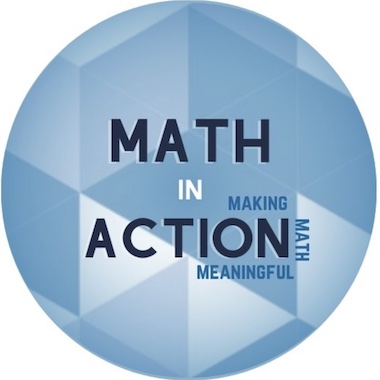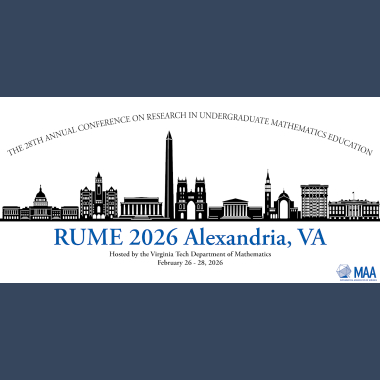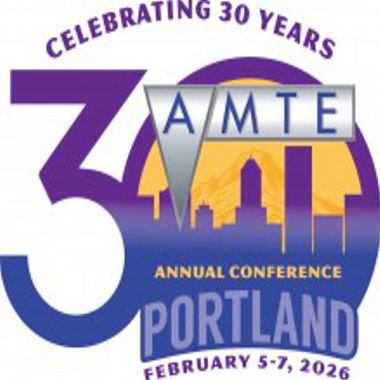2025 MSU Math Ed at PME-NA
Founded as a dedicated international group of researchers and practitioners at 1976’s Third International Congress on Mathematical Education (ICME-3) in Karlsrühe, Germany, The International Group for the Psychology of Mathematics Education (IGPME) held its first conference in 1977 in Utrecht in the Netherlands. Held in Evanston, Illinois in 1979, The North American Chapter of PME (PME-NA) started off with its first conference not long after. Next week, PME-NA is hosting the 47th edition of their annual conference PME-NA 2025 in State College, Pennsylvania, at Penn State University from October 26 to October 29. Several mathematics education researchers from MSU are going to present their work in different capacities and modalities in PME-NA 2025.

 The conference theme this year is Changing Mathematics Education by Educating for Change. According to their website, “this theme acknowledges and embraces that the world
and the research we do to understand the world are constantly in flux” and in this
rapidly evolving world with both hope and despair, the conference organizers want
to provide “time and space for participants to collectively pursue” the efforts to
“create, recreate, and imagine new paradigms of mathematics education theory, methods,
and being”.
The conference theme this year is Changing Mathematics Education by Educating for Change. According to their website, “this theme acknowledges and embraces that the world
and the research we do to understand the world are constantly in flux” and in this
rapidly evolving world with both hope and despair, the conference organizers want
to provide “time and space for participants to collectively pursue” the efforts to
“create, recreate, and imagine new paradigms of mathematics education theory, methods,
and being”.
From MSU, Kristen N Bieda, Katie Tasch Bielecki (CITE graduate student), Ayesha Maliwal Bundy, Kyle Chong (TE research associate), Maria Cruciani, Catherine Davis, Beth Herbel-Eisenmann, Ahmad Wachidul Kohar, Joanne Marciano (TE faculty member), Reagin Taylor McNeill, Matthew Voigt, Kristen Vroom, Samantha Wald, and Sabrina Zarza will be representing MSU at PME-NA 2025.
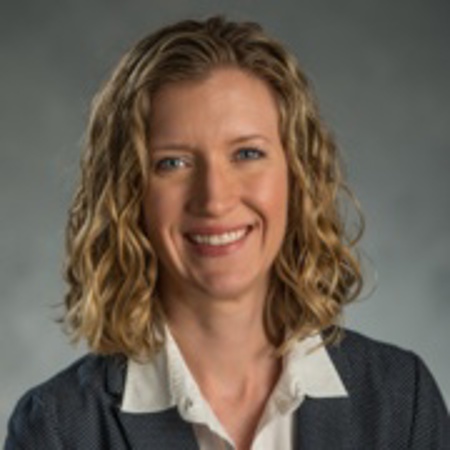 In their research report session titled “Supporting Lesson Planning: How a Mathematics
Teacher Educator Guided Preservice Teachers with Feedback”, PRIME and Teacher Education
faculty member Kristen Bieda with her co-presenters will be discussing how analysis of mathematics teacher educators’
written feedback can tell us more about lesson planning as a fundamental teaching
practice, of which yet little is known in the research literature in math ed.
In their research report session titled “Supporting Lesson Planning: How a Mathematics
Teacher Educator Guided Preservice Teachers with Feedback”, PRIME and Teacher Education
faculty member Kristen Bieda with her co-presenters will be discussing how analysis of mathematics teacher educators’
written feedback can tell us more about lesson planning as a fundamental teaching
practice, of which yet little is known in the research literature in math ed.
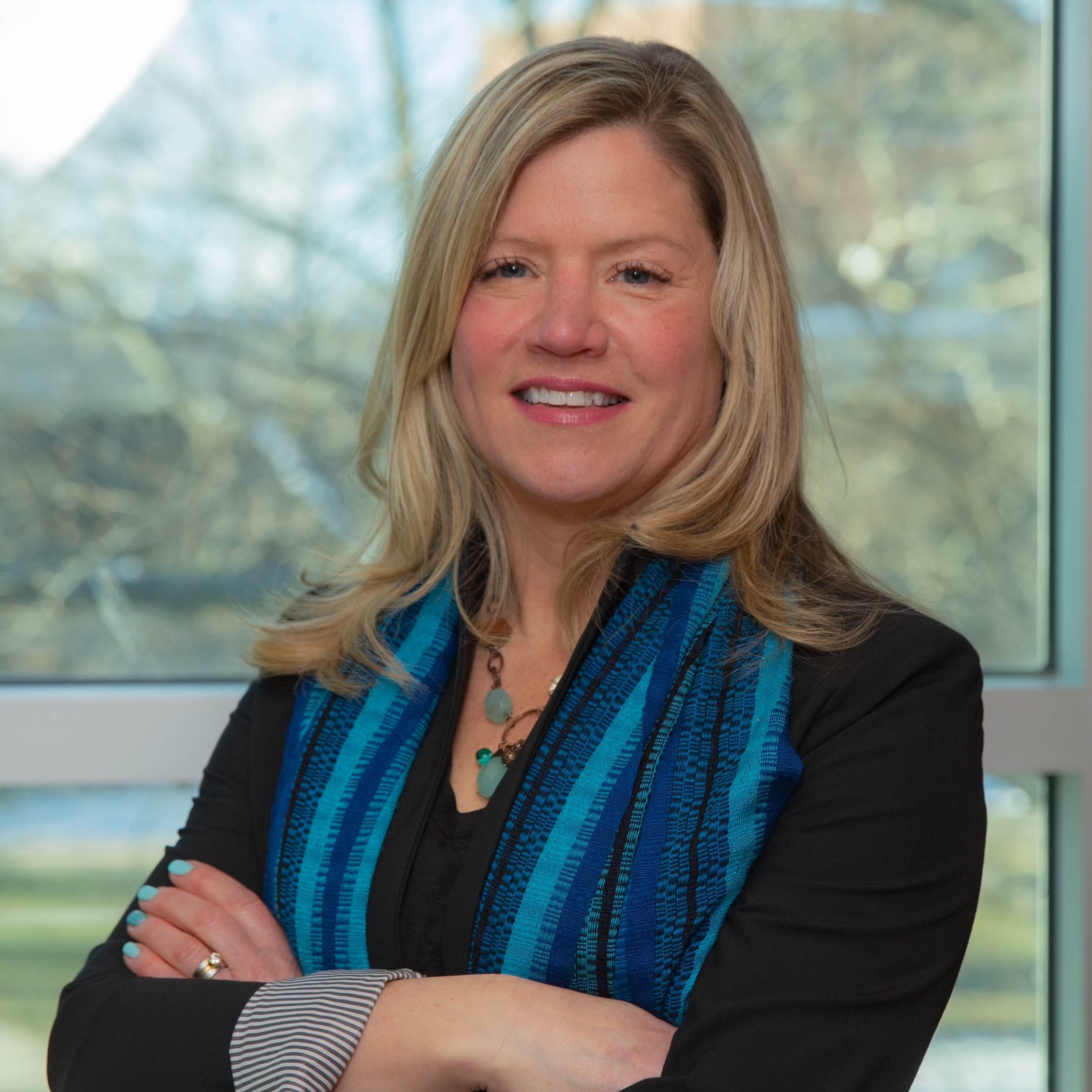 In their brief research report session on Youth Voice and Collective Inquiry, titled
“Healing and Systemic Repair in Mathematics: Norm Setting with Youth”, PRIME graduate
student Sabrina Zarza CITE graduate student Katie Tasch Bielecki, PRIME and Teacher
Education faculty member Beth Herbel-Eisenmann and Teacher Education faculty member Joanne Marciano, will be exploring youth resistance
to dominant epistemologies and their assertion of alternative ways of knowing– reimagining
mathematics education as a site of healing, creativity, and student agency.
In their brief research report session on Youth Voice and Collective Inquiry, titled
“Healing and Systemic Repair in Mathematics: Norm Setting with Youth”, PRIME graduate
student Sabrina Zarza CITE graduate student Katie Tasch Bielecki, PRIME and Teacher
Education faculty member Beth Herbel-Eisenmann and Teacher Education faculty member Joanne Marciano, will be exploring youth resistance
to dominant epistemologies and their assertion of alternative ways of knowing– reimagining
mathematics education as a site of healing, creativity, and student agency.
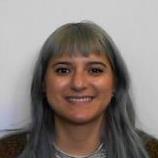 Sabrina Zarza has another presentation titled ““I want to make these kids feel seen”: Pláticas
with Latine Secondary Mathematics Teachers”. Sabrina will be using pláticas as a methodology
and a lens, framed within Chicana feminist epistemology and the concept of Xicana
Sacred Space and emphasizing collective theorization and meaning-making. She will
share how Latine secondary mathematics teachers leverage their experiences to support
their students through relational teaching approaches. Her co-authors for this presentation
are Latine teachers and education researchers themselves.
Sabrina Zarza has another presentation titled ““I want to make these kids feel seen”: Pláticas
with Latine Secondary Mathematics Teachers”. Sabrina will be using pláticas as a methodology
and a lens, framed within Chicana feminist epistemology and the concept of Xicana
Sacred Space and emphasizing collective theorization and meaning-making. She will
share how Latine secondary mathematics teachers leverage their experiences to support
their students through relational teaching approaches. Her co-authors for this presentation
are Latine teachers and education researchers themselves.
In another brief research report presentation, PRIME graduate student Ayesha Maliwal Bundy and PRIME faculty member Matthew Voigt, with their co-presenters from other universities, will share their investigation on tangible structures and practices used by one mathematics department networked improvement community to support equitable collaboration with students. Their presentation is titled “Supporting Student-Faculty Partnerships for Critical Transformations in Mathematics”.
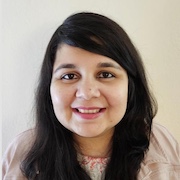

In their presentation “The Racialized Discourses in Arguments to Retrack Mathematics”, MSU research associate Kyle Chong together with PRIME alumna Sheila Orr, using a critical policy discourse analysis method, will be examining racialized discourses around a recent proposal to retrack a school district on their performance in Algebra I. Kyle mentioned, “Sheila and I are excited to share a little of the work we’ve been doing on how (de)tracking policies and politics are talked about in San Francisco, CA. Specifically, we’re excited to share some of our findings about how politicians and political stakeholders uphold racist mathematical ability hierarchies through how they weaponize and racialize discourses about who is “ready for” 8th Grade Algebra 1”.
 By integrating critiques on data feminism from transnational feminism, PRIME graduate
student Maria Cruciani in her presentation “Advancing Data Feminism: The Role of Effective Communities in
Data Science and Statistics Education” is going to discuss where data feminism is
currently being used in statistics and data science education and examine possible
paths forward in the field.
By integrating critiques on data feminism from transnational feminism, PRIME graduate
student Maria Cruciani in her presentation “Advancing Data Feminism: The Role of Effective Communities in
Data Science and Statistics Education” is going to discuss where data feminism is
currently being used in statistics and data science education and examine possible
paths forward in the field.
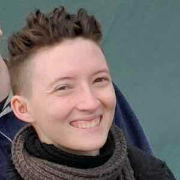 PRIME graduate student C. Davis, together with co-presenters from other universities, will be presenting their Gender
and Sexuality Working Group reports in three of the Working Groups and Research Colloquia
sessions titled “Investigating Pre-Service Teachers’ Experiences With and Views of
Concealable Stigmatized Identities”. They will be focusing on pre-service teachers’
experiences with and views of concealable stigmatized identities (including gender
and sexuality) in relation to mathematics teaching and learning. By examining PME-NA
conference proceedings from the past 3 years, Davis and their co-presenters from other
universities, in another presentation titled “Use of Gender- and Sex-Related Terminology
in the PME-NA 2022 to 2024 Proceedings”, will be discussing how researchers from a
wide variety of sub-fields of mathematics education use gender- and sex-related terminology.
Commenting on the role of PME-NA in their academic life journey, Davis mentioned how
PME-NA’s robust working group opportunities “make it easy to connect with other scholars
in relevant subject areas”. They also added, “by attending PME-NA last year, I was
invited to become a leader of PME-NA’s gender and sexuality working group and now
have the pleasure of presenting our pilot study on concealable stigmatized identities
and a paper on gendered language in the PME-NA proceedings”. For them, the goal of
this year “is to continue networking with other scholars discussing equity research
in mathematics education and to join more discussions about what it means to be an
equity scholar in the current political climate.”
PRIME graduate student C. Davis, together with co-presenters from other universities, will be presenting their Gender
and Sexuality Working Group reports in three of the Working Groups and Research Colloquia
sessions titled “Investigating Pre-Service Teachers’ Experiences With and Views of
Concealable Stigmatized Identities”. They will be focusing on pre-service teachers’
experiences with and views of concealable stigmatized identities (including gender
and sexuality) in relation to mathematics teaching and learning. By examining PME-NA
conference proceedings from the past 3 years, Davis and their co-presenters from other
universities, in another presentation titled “Use of Gender- and Sex-Related Terminology
in the PME-NA 2022 to 2024 Proceedings”, will be discussing how researchers from a
wide variety of sub-fields of mathematics education use gender- and sex-related terminology.
Commenting on the role of PME-NA in their academic life journey, Davis mentioned how
PME-NA’s robust working group opportunities “make it easy to connect with other scholars
in relevant subject areas”. They also added, “by attending PME-NA last year, I was
invited to become a leader of PME-NA’s gender and sexuality working group and now
have the pleasure of presenting our pilot study on concealable stigmatized identities
and a paper on gendered language in the PME-NA proceedings”. For them, the goal of
this year “is to continue networking with other scholars discussing equity research
in mathematics education and to join more discussions about what it means to be an
equity scholar in the current political climate.”
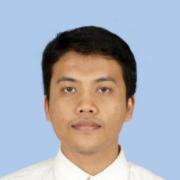 In his poster titled “Overarching Dimensions in Context-based Mathematical Problem-Posing:
Focus on Tasks and Products”, PRIME graduate student Ahmad Wachidul Kohar will be presenting an overarching picture of context-based mathematical problem-posing
(CMPP) with two key variables: CMPP tasks and CMPP products. Ahmad added that PME-NA
conferences “consistently feature timely and relevant themes, with keynote talks that
are both insightful and engaging, highlighting emerging and evolving topics in mathematics
education across grade levels, making it a rich space for learning about current directions
in the field”. He hopes, “building professional networks, connecting with scholars
who share similar research interests, and engaging with leading experts” that PME-NA
allows a space for, and will strengthen, both his academic capacity and social competence
within the research community.
In his poster titled “Overarching Dimensions in Context-based Mathematical Problem-Posing:
Focus on Tasks and Products”, PRIME graduate student Ahmad Wachidul Kohar will be presenting an overarching picture of context-based mathematical problem-posing
(CMPP) with two key variables: CMPP tasks and CMPP products. Ahmad added that PME-NA
conferences “consistently feature timely and relevant themes, with keynote talks that
are both insightful and engaging, highlighting emerging and evolving topics in mathematics
education across grade levels, making it a rich space for learning about current directions
in the field”. He hopes, “building professional networks, connecting with scholars
who share similar research interests, and engaging with leading experts” that PME-NA
allows a space for, and will strengthen, both his academic capacity and social competence
within the research community.
 Informed by critical race theory, in their single-authored presentation titled “Gateway
or Gatekeeper?: How Instruction Shapes Mathematics Identity Among Black and Latin*
Undergraduates in Calculus”, PRIME and Lyman Briggs College faculty member Reagin Taylor McNeill will be analytically foregrounding Black and Latin* students’ calculus experiences,
triangulating with classroom observations and instructors’ teaching philosophies across
three sections with different instructional practices, with implications for addressing
cross-institutional research and instructional strategies to support Black and Latin*
students’ STEM persistence. Reagin appreciated the “good amount of critical research
taking place” at PME-NA last year and is looking forward to learning what is there
for them as a critical researcher in mathematics education this year. They also shared
their feeling of excitement in “bringing a solo-authored paper”, making it their “first
opportunity to discuss the analysis with others” at PME-NA.
Informed by critical race theory, in their single-authored presentation titled “Gateway
or Gatekeeper?: How Instruction Shapes Mathematics Identity Among Black and Latin*
Undergraduates in Calculus”, PRIME and Lyman Briggs College faculty member Reagin Taylor McNeill will be analytically foregrounding Black and Latin* students’ calculus experiences,
triangulating with classroom observations and instructors’ teaching philosophies across
three sections with different instructional practices, with implications for addressing
cross-institutional research and instructional strategies to support Black and Latin*
students’ STEM persistence. Reagin appreciated the “good amount of critical research
taking place” at PME-NA last year and is looking forward to learning what is there
for them as a critical researcher in mathematics education this year. They also shared
their feeling of excitement in “bringing a solo-authored paper”, making it their “first
opportunity to discuss the analysis with others” at PME-NA.
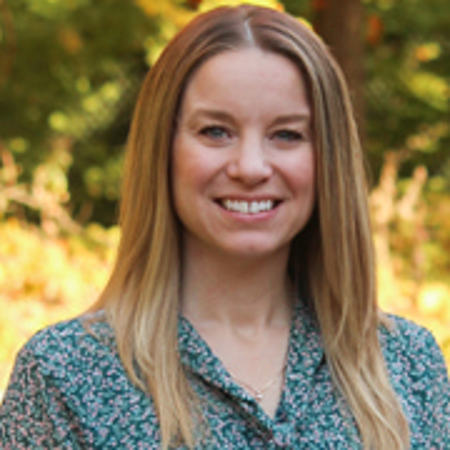 Kristen Vroom, a faculty member in PRIME and Lyman Briggs College, will be presenting how uncertainty
discourse can shift the culture of proof in the classrooms by addressing the question:
What expanded “truths” (Discourses) about proof were evidenced from students’ uncertainty
discourse?, in her presentation titled ““It is always a quandry”: Uncertainty (d)iscourse
in the proof classroom”.
Kristen Vroom, a faculty member in PRIME and Lyman Briggs College, will be presenting how uncertainty
discourse can shift the culture of proof in the classrooms by addressing the question:
What expanded “truths” (Discourses) about proof were evidenced from students’ uncertainty
discourse?, in her presentation titled ““It is always a quandry”: Uncertainty (d)iscourse
in the proof classroom”.
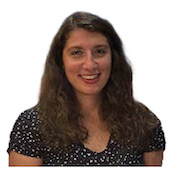 Samantha Wald, PRIME graduate student, is going to present in her brief research report titled
“Fostering Cultural Relevance in Secondary Mathematics Methods Courses”, an unexplored
aspect of the existing research in culturally relevant pedagogy– how mathematics teacher
educators adapt their curriculum materials to respond to the needs of prospective
teachers (PTs) to enact culturally relevant pedagogy. This work is co-authored with
PRIME alumna Sheila Orr. In another individual poster presentation titled “Culturally
Responsive Math Task revision in Action: A Framework and Tool”, Samantha will co-present
a framework and tool made in her own research work to guide practicing teachers through
the process of modifying/adapting a task to be culturally responsive/relevant.
Samantha Wald, PRIME graduate student, is going to present in her brief research report titled
“Fostering Cultural Relevance in Secondary Mathematics Methods Courses”, an unexplored
aspect of the existing research in culturally relevant pedagogy– how mathematics teacher
educators adapt their curriculum materials to respond to the needs of prospective
teachers (PTs) to enact culturally relevant pedagogy. This work is co-authored with
PRIME alumna Sheila Orr. In another individual poster presentation titled “Culturally
Responsive Math Task revision in Action: A Framework and Tool”, Samantha will co-present
a framework and tool made in her own research work to guide practicing teachers through
the process of modifying/adapting a task to be culturally responsive/relevant.
On behalf of the PRIME family, we wish all the MSU mathematics education researchers taking part in PME-NA 2025 great success! Their sustaining work keeps our collective community alive and vibrant.
MSU Presentations at PME-NA 2025
Monday, October 27, 2025
Fostering Cultural Relevance in Secondary Mathematics Methods Courses
8:00 to 9:15am, Penn Stater Conference Center, Floor: Second Level, 204
Samantha Wald, Sheila Orr
The Racialized Discourses in Arguments to Retrack Mathematics
9:30 to 10:15am, Penn Stater Conference Center, Floor: Second Level, 211
Sheila Orr, Kyle Chong
10:45am to 12:15pm, Penn Stater Conference Center, Floor: Second Level, 211
Catherine Davis and others
Use of Gender- and Sex-Related Terminology in the PME-NA 2022 to 2024 Proceedings
2:30 to 3:15pm, Penn Stater Conference Center, Floor: Main Level, 112
Catherine Davis and others
“It is always a quandry”: Uncertainty (d)iscourse in the proof classroom
2:30 to 3:15pm, Penn Stater Conference Center, Floor: Second Level, 204
Kristen Vroom and others
Overarching Dimensions in Context-based Mathematical Problem-Posing: Focus on Tasks and Products
4:30 to 5:30pm, Penn Stater Conference Center, Floor: Main Level, Deans Hall
Ahmad Wachidul Kohar
Culturally Responsive Math Task revision in Action: A Framework and Tool
4:30 to 5:30pm, Penn Stater Conference Center, Floor: Main Level, Deans Hall
Samantha Wald and others
Tuesday, October 28, 2025
Supporting Student-Faculty Partnerships for Critical Transformations in Mathematics
9:30 to 10:15am, Penn Stater Conference Center, Floor: Main Level, 105
Ayesha Maliwal Bundy, Matthew Voigt and others
Advancing Data Feminism: The Role of Effective Communities in Data Science and Statistics Education
9:30 to 10:15am, Penn Stater Conference Center, Floor: Second Level, 207
Maria Cruciani
10:45am to 12:15pm, Penn Stater Conference Center, Floor: Second Level, 211
Catherine Davis and others
2:30 to 3:15pm, Penn Stater Conference Center, Floor: Second Level, 204
Kristen N Bieda and others
2:30 to 3:15pm, Penn Stater Conference Center, Floor: Main Level, 106
Reagin Taylor McNeill
“I want to make these kids feel seen”: Pláticas with Latine Secondary Mathematics Teachers
2:30 to 3:15pm, Penn Stater Conference Center, Floor: Main Level, 108
Sabrina Zarza and others
Healing and Systemic Repair in Mathematics: Norm Setting with Youth
3:45 to 4:30pm, Penn Stater Conference Center, Floor: Main Level, 109
Sabrina Zarza, Katie Tasch Bielecki, Beth Herbel-Eisenmann, Joanne Marciano
Wednesday, October 29, 2025
10:00 to 11:30am, Penn Stater Conference Center, Floor: Second Level, 211
Catherine Davis and others
